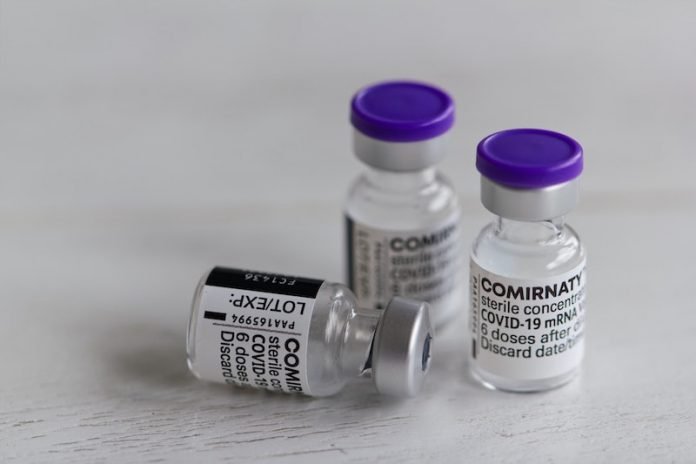
The U.S. Food & Drug Administration granted emergency use authorization to the mRNA-based vaccines known as BNT162b2 (BioNTech, Pfizer) and mRNA-1273 (Moderna) in December 2020, and to the Ad26.COV2.S (Johnson & Johnson) single-shot vaccine in February 2021.
To date, nearly 200 million Americans have received a COVID-19 vaccine, and as some approach the one-year anniversary of their immunization, questions remain about the vaccines’ long-term efficacy.
In a new study from Beth Israel Deaconess Medical Center, researchers compared immune responses induced by the three vaccines over an eight-month follow-up period.
They evaluated the 61 participants’ levels of various antibodies, T cells and other immune products at two to four weeks following complete immunization—the time of peak immunity—to eight months after vaccination.
Thirty-one participants received the Pfizer vaccine, 22 received the Moderna vaccine and eight received the Johnson & Johnson vaccine.
They found the two mRNA vaccines had high peak antibody responses that declined sharply by month six and declined further by month eight.
The single-shot Johnson & Johnson vaccine-induced lower initial antibody responses, but these responses were generally stable over time with minimal to no evidence of decline.
The team also found that Moderna elicited antibody responses which were generally higher and more durable than Pfizer. All three vaccines demonstrated broad cross-reactivity to variants of SARS-CoV-2, the virus that causes COVID-19.
They say the findings have important implications for understanding how vaccine immunity may wane over time; however, the precise immune responses necessary to confer protection against SARS-CoV-2 has not yet been determined.
Even though neutralizing antibody levels decline, stable T cell responses and non-neutralizing antibody functions at 8 months may explain how the vaccines continue to provide robust protection against severe COVID-19.
Getting vaccinated (even during pregnancy) is still the best tool we have to end the COVID-19 pandemic.
If you care about COVID vaccines, please read studies about this new COVID-19 vaccine can give the body ‘border protection’ and findings of Pfizer vaccine may protect against COVID variants in these people.
For more information about COVID vaccines and your health, please see recent studies about these old vaccines can fight COVID-19 pandemic and results showing that one dose of Pfizer vaccine may effectively protect people who’ve had COVID.
The study is published in the New England Journal of Medicine. One author of the study is Dan H. Barouch, MD, Ph.D.
Copyright © 2021 Knowridge Science Report. All rights reserved.



